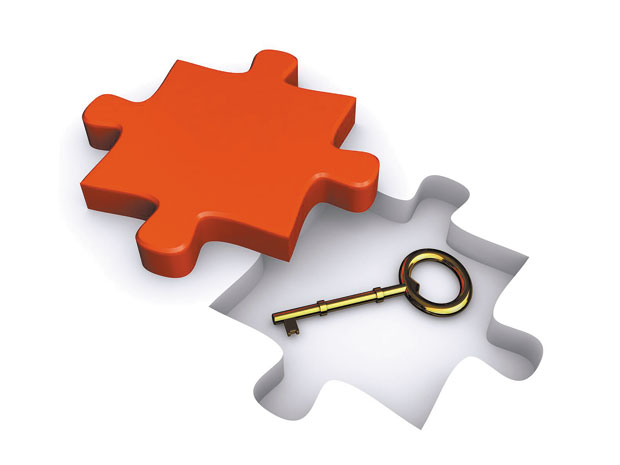Most people focus on the negative side of stress and miss out on its positive aspects. By shifting our perceptions, we can be empowered by inner peace
QUESTION OF THE WEEK: You offer such great advice and I enjoy your column and the tips you offer. Can you share your insight on stress? This is an area of concern in my life. I am so stressed out all the time!
We all can relate to stress. It’s one of the top things that people tell me they want to manage or “get rid of.” It’s hard to feel “positive” about having a lot of stress in your life, unless you understand what it is, why you have it and how to best deal with it. Many people think of stress as negative, but I’ve found through experience that this belief is not 100 percent true. Below is my take on stress and the symbolic correlation of where it shows up in your home.

Are there positive aspects to stress?
In our society, we believe that stress is “bad” and that we need to “get rid of” or “manage” it, but we can create a new awareness from the positive aspects of stress. When I work with people who have stress, I begin by helping them change their perceptions of it.
In my stress relief classes at Happiness U, I first ask attendees, “Why do you stress?” Usually, no one offers the answer I’m looking for: “I stress because I care.” If you didn’t care, you wouldn’t stress. You likely care about doing a good job, being a responsible person, maintaining a good reputation or expectations you have about yourself, or keeping your standards high, to name a few. Part of being human is about caring — caring about ourselves and others, and about how we operate in this world — and that is a good thing.
Studies on “good” stress
The latest studies show that changing our perception of stress changes how stress affects us physically and mentally.
Did you know that the hormones released by our stress response boost memory performance, facilitate mental toughness, deepen social bonds (when we are stressed we call our friends and share our challenges or complain to co-workers about the same things), help us to get ahead in life and get things done, strengthen our priorities, and even cause an increase in the speed at which the brain processes information?
Studies show perception makes a big difference
After being tested and rated on their mental and physical discomfort, a group of stressed people was divided into two. One group was shown a video detailing the research and results on the negative aspects of stress, and the other was shown a video detailing all the positive aspects of stress.
One week later, they were brought in to be retested, and the group that saw the video of the positive aspects of stress showed a 23 percent decrease in physical symptoms (fatigue, backache, headache and mental discomfort). They gained a new perspective when it came to stress and created a more positive outlook in stressful situations.
Use this information to your advantage by finding all the ways that stress benefits you. The more you do this, the more you will dissipate and lessen stressful challenges.
Our stress is self-created
When people are stressed, they tend to distort reality. Watch for these common distortions and avoid them whenever you can.
• All-or-nothing thinking. Stop putting the things in your life into black-or-white categories, with no middle ground; for example, saying things like, “If I don’t do this perfectly, I wasted all my time,” or “It was all for nothing.” In reality, not “all” the time was wasted. Every situation has positive aspects.
• Overgeneralization. Generalizing a negative experience and affirming it will be true forever causes stress. For example, “I didn’t get hired for this job. So, I’ll never find a job.” This thinking creates a self-fulfilling prophecy with a stressful outlook.
• Jumping to conclusions. Avoid making negative interpretations without actual evidence. Avoid assumptions like, “She’s mad at me because she didn’t greet me warmly,” or “I just know this is not going to go the way I want it to.” Catch yourself when you start acting or thinking like a mind reader or fortune teller.
Stress doesn’t have to be in your life to the degree that it is. Balancing your perceptions is a big key to balancing your stress!
The symbolic representation of stress in your environment
Stress is symbolically represented in our homes by electricity. Exposed power cords increase our awareness of the unbalanced stress in our lives. Take the time to camouflage electrical cords with plants or hide them behind furniture where they are out of sight. Cover up fuse boxes with artwork and replace burnt-out light bulbs.
Create a stress-free life
Create a less stressful environment by finding the middle ground, learning to be “imperfect,” scheduling “me” time, doing one enjoyable thing each day, saying no, avoiding triggers (including certain people), making an effort to manage your time better and paring down your to-do list. On the emotional side, don’t bottle up your feelings, be willing to compromise and be assertive without being aggressive.
I hope some of what I shared today is of help in your journey toward stress-free living!
Alice Inoue is the founder and Chief Happiness Officer at Happiness U, a friendly educational establishment at Na Lama Kukui (formerly known as Gentry Pacific Design Center) on Nimitz Highway. At Happiness U you’ll find dozens of inspiring classes all geared toward personal growth, helping you live a more purposeful and ease-filled life. Visit www.YourHappinessU.com.